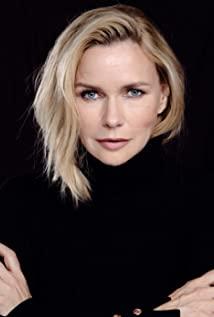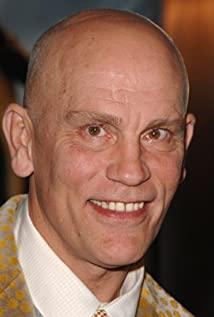More than 2,000 years ago, when Sima Qian mentioned the original intention of writing "Biographies of Cruel Officials", he said: "The people are more ingenious, and the tricks are tricky. Good people cannot be transformed. Forbid rape and stop evil, everything is also polite and has its own civil and military. Although it is cruel, he is called it." I believe that there are similarities in Eastern and Western values. Javert was such a person, who hated evil as hatred, was loyal and wise, and in the words of Water Margin, "was not willing to give in to anything". Hugo gave a precise positioning as soon as he appeared on the scene: "Some police officers have a distinctive face, a face combined with a mean look and an authoritative look, Javert has that kind of look. Face, but not that mean look." The future sheriff, first class scout, was born in a prison, his mother a card fortune teller and his father a convict. Perhaps this "original sin" made Javert naturally intolerable to crime. Even if his biological parents escaped, he would report and capture them with his own hands. "Records of the Grand Historian" mentioned such an opposite example: The stone extravagant is also the prime minister of King Zhao of Chu. Upright and honest, there is nothing to avoid. In Xingxian, there are murderers, and they chase after each other, and it is their father. Even if his father is still in charge of himself. The king said: "A murderer is the father of the minister. It is not filial for a husband to establish government with his father; to abolish the law and commit crimes is not loyal; the crime of a minister should be killed." The son will govern things." Shi She said: "If you don't betray your father, you're not a filial son; if you don't obey the law, you're not a loyal minister. If a king pardons his sins, he will be superior; if he is killed by execution, he is a minister." Without order, he committed suicide. "The Spring and Autumn Annals of Lu's" commented on this: "If the righteous law is violated, he will die. If the father violates the law, he cannot bear it. The Wang pardons him and refuses to accept it. Shi Zhu (that is, Shi She) is a minister, and he can be said to be loyal and filial." Forgive things," Westerners put their hearts to religion. Hugo concluded Javert: "He was not at all a so-called Voltaire, philosopher or atheist, on the contrary, he instinctively respected the established Church, which he regarded only as the A solemn part to recognize that public order is his creed, and that is enough for him; since he became a policeman of adulthood, he has almost regarded public security policing as his religion, and he is a spy like others are priests Again, we use these words in the most serious sense, without any sarcasm. He has a superior, Monsieur Gisquet, and so far he has never thought of another: God." His obedience had reached the point of paranoia, and he pursued Jean Valjean every day for more than ten years. This mechanical behavior even aroused the dissatisfaction of his superiors. However, the laws at that time were not fair and reasonable, which was Javert's sorrow. Nineteen years of hard labor caused by a piece of bread , Fantine was forced to become a prostitute and was almost arrested, all because the law safeguarded the interests of the propertied class. There is an old saying in China, "It is better to kill innocent people than to kill innocent people", which means that when dealing with difficult cases, it is better to be lenient and not follow the common law, and not to kill innocent people by mistake. But this rule of "the lesser the culpable" does not apply on Javert's side. "He treats with contempt, hatred, and disgust all those who have ever broken the law...and does not allow the lower classes to plead." This is why Javert appears ruthless in his handling of policing. He only identified people as committing crimes, but did not want to deal with the reasons for the crimes. When Jean Valjean became mayor of Madeleine, he had a very subtle statement: "We have only to exert a little effort, and the nettle becomes a useful thing, and if we leave it alone, it becomes a harmful thing. So we Get rid of it. There are a lot of people in the world that look like nettles." He's talking about redemption. The law is the yardstick of right and wrong, but the highest law is the conscience. While Jean Valjean realizes the power of forgiveness after the bishop's initiation, Javert is bound by those lines. But Javert was a noble man, especially when he dismissed the mayor of Madeleine. "He worked hard all his life, lived alone, had self-denial, and restrained his desires. He never entertained. He was absolutely public and selfless about his job." This impression was attributed to John The image that Malkovich created was too brilliant and became three-dimensional. He is upright and unwilling to let go of his duty to control criminals to monitor people's ideological derailment. Even if it went against his heart, he dutifully completed the task assigned by his boss. Even when he was seen through by the revolutionaries, he still tried to convince them that he was not a stubborn hawk, and he also had a cult of elitism in his heart. A first-level scout who was bound, could be killed in a dozen hours, and he remembered everyone in the barricade with astonishing composure and talent. Hugo is good at carrying the power of shocking people with bland sentences. For example, when Jean Valjean asked Javert to execute Javert, he motioned him to stand up and follow: "Javert did so with a smile. The smile is still unpredictable, but it shows the superiority of a bound authority." Fearless, serene, facing the The ease of death. Javert could have done more in time, and the inner conflict ended his life. It is not so much that Jean Valjean's disregard of the past made Javert at a loss, it is better to say that the latter saw the brilliance of human nature and questioned his adherence to the principles of his life. When Javert addressed Jean Valjean by the word "you", he was already aware of equality. Jean Valjean gave him freedom, but he was caught in a moral dilemma. In terms of Hugo's consistent philosophy: universal humanitarianism is above all interests. So the last time the old enemies met, Mr. Sheriff did many unprecedented things: he helped send Marius home, agreed to say goodbye to Jean Valjean and Cosette, gave up the prey and left silently, returning to the police station to stay. The next report to the government. The film is limited by the form of expression and fails to tell us the content of Javert's last words, that "he wrote these lines with his most serene and neat calligraphy, without missing a comma, and the writing is firm, and the writing is heavy on the paper. rustling" loyal advice is a pity. Looking back at the choice of stone luxury. It is also a perversion of the law. Shi extravagance is out of human relations, while Javert is out of morality. Neither of them accepted a pardon, and they brought themselves to justice with one death, achieving a balance between law and conscience. Mencius said: "In the world there is the Dao, and the Dao is used to sacrifice one's life; there is no Dao in the world, and the body is sacrificed. I have never heard of anyone who sacrificed the Dao." Javert was a perfect product of the old system, and he also sacrificed for it. The film gave Javert a beautiful death. John Malkovich folded his hands and walked into the Seine step by step in the morning light, until the fog cleared, leaving only a top hat on the water.
View more about Les misérables reviews











